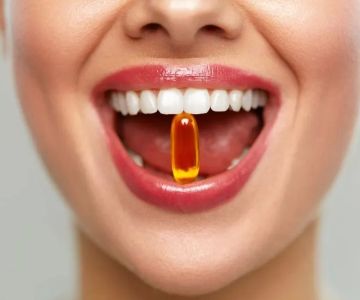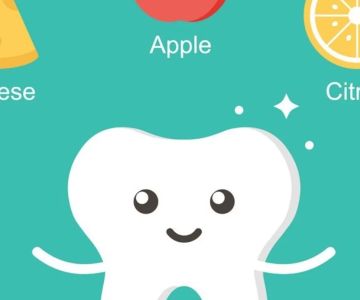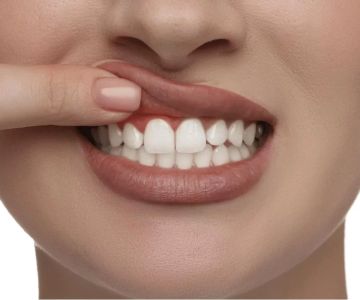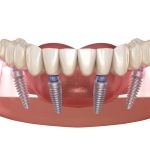Why Don’t Oral Diet Leptin Pills Work? Understanding the Science Behind It
Leptin, often referred to as the "satiety hormone," plays a crucial role in regulating body weight, appetite, and metabolism. Many people turn to leptin-based supplements, such as oral diet leptin pills, hoping they will help with weight loss by suppressing appetite and increasing fat burning. However, despite their promises, these pills often fail to deliver the expected results. So, why don’t oral diet leptin pills work as intended? In this article, we’ll explore the science behind leptin, its role in the body, and why leptin pills often don't have the desired effect on weight loss.
Understanding Leptin and Its Role in the Body
Leptin is a hormone produced primarily by fat cells in the body. Its main function is to help regulate energy balance by signaling to the brain when the body has enough energy stored, thereby reducing hunger and increasing energy expenditure. Essentially, leptin tells the brain that the body has enough fat stores, signaling it to stop eating and increase metabolism.
Leptin works in a delicate balance with other hormones to maintain homeostasis, ensuring that the body neither stores excessive fat nor becomes too depleted of energy. However, for many people, this system doesn't work as efficiently as it should. This is where leptin supplements, including oral diet leptin pills, come into play.
What Are Oral Diet Leptin Pills?
Oral diet leptin pills are marketed as weight loss supplements that aim to mimic the effects of natural leptin in the body. They are supposed to help regulate hunger, increase metabolism, and reduce fat storage. The idea is that by taking these pills, you can trick the brain into thinking it has enough energy reserves, thereby suppressing appetite and promoting fat loss.
Why Do Oral Diet Leptin Pills Fail to Work?
Despite the science behind leptin's role in weight regulation, leptin pills often don't work as expected. There are several reasons for this, ranging from biological factors to the way these pills are formulated.
1. Leptin Resistance
The most significant reason why leptin pills fail is the phenomenon of leptin resistance. In simple terms, leptin resistance occurs when the brain stops responding to leptin signals. Even though the body may have plenty of fat stored, the brain doesn’t receive the "satiety" signal that leptin is supposed to send. This leads to increased hunger and decreased energy expenditure, making it much harder to lose weight.
Leptin resistance is common in individuals who are overweight or obese. In fact, the more fat cells a person has, the more leptin they produce. However, despite having high levels of leptin, the brain doesn't respond properly to the hormone’s signals, leading to overeating and weight gain. As a result, taking oral leptin pills may not be effective in these individuals because their bodies are already resistant to leptin’s effects.
2. Oral Leptin Pills Don’t Address the Root Cause
While leptin resistance is the primary issue, oral leptin pills don’t address the underlying cause of the problem. These pills attempt to deliver more leptin into the body, but they don’t resolve the resistance that the brain has developed to the hormone. Simply adding more leptin to the system doesn’t restore the brain’s ability to respond effectively to the hormone. Therefore, the pills often have little to no impact on appetite regulation or fat loss.
3. Poor Absorption and Bioavailability
Another reason why oral leptin pills don’t work as expected is the challenge of getting leptin to be absorbed effectively in the body. Leptin is a large protein molecule, and when taken orally, it is broken down by the digestive system before it can reach the bloodstream in sufficient amounts. This limits its ability to be effective in the body, as the majority of the leptin from the pills never actually reaches the brain or fat cells.
Even if leptin were to make it into the bloodstream, it would still need to be able to cross the blood-brain barrier to have any impact on appetite and energy regulation. Unfortunately, most oral leptin formulations have poor bioavailability, meaning very little of the active ingredient actually reaches the parts of the body that need it.
4. The Complex Nature of Weight Regulation
Weight regulation is a complex process that involves more than just leptin. Other hormones, such as insulin, ghrelin, and cortisol, play significant roles in appetite, metabolism, and fat storage. Weight loss is influenced by a variety of factors, including diet, physical activity, genetics, and lifestyle choices. Leptin supplements alone cannot address these multiple variables, which is why they are often ineffective in helping people lose weight.
5. Psychological and Environmental Factors
In addition to the biological reasons for leptin pill ineffectiveness, psychological and environmental factors can also impact weight loss efforts. Emotional eating, stress, lack of sleep, and other behavioral factors can make it difficult for individuals to stick to healthy eating habits, regardless of whether they are taking leptin pills. These external factors often overshadow the potential benefits of leptin supplementation, leading to frustration and disappointment for users.
What Are the Alternatives to Leptin Pills for Weight Loss?
Instead of relying on leptin pills, individuals seeking to lose weight should focus on strategies that address the root causes of weight gain and leptin resistance. Here are a few alternatives to consider:
1. Improve Diet and Nutrition
One of the most effective ways to improve leptin sensitivity is through diet. Eating a balanced, nutrient-dense diet that is low in processed foods and sugars can help reduce inflammation, improve metabolic function, and enhance leptin sensitivity. A focus on whole foods, healthy fats, lean proteins, and fiber-rich vegetables is crucial in managing weight.
2. Increase Physical Activity
Regular exercise is another key factor in improving leptin sensitivity. Both aerobic and strength training exercises have been shown to improve how the body responds to leptin, helping to regulate appetite and boost metabolism. A combination of cardio and strength training is ideal for long-term weight management.
3. Manage Stress and Sleep
Chronic stress and poor sleep can exacerbate leptin resistance. Practices such as mindfulness, yoga, and adequate sleep (7-9 hours per night) are important for maintaining a healthy weight and improving the body’s response to leptin.
Conclusion: Why Leptin Pills Aren't a Magic Solution
In conclusion, oral diet leptin pills are not a magic solution for weight loss. While leptin plays a vital role in regulating appetite and metabolism, the issues of leptin resistance, poor absorption, and the complexity of weight regulation make these pills ineffective for many individuals. Instead of relying on leptin supplements, focusing on a holistic approach to diet, exercise, and lifestyle changes is the most effective way to address weight loss challenges and improve leptin sensitivity over time.







 Adelante Healthcare3.0 (348 review)
Adelante Healthcare3.0 (348 review) NÜVA Smile4.0 (105 review)
NÜVA Smile4.0 (105 review) Oral Surgery Services Inc4.0 (89 review)
Oral Surgery Services Inc4.0 (89 review) Dr. Samantha L. Cho, DDS5.0 (3 review)
Dr. Samantha L. Cho, DDS5.0 (3 review) Cox Erin E DDS3.0 (3 review)
Cox Erin E DDS3.0 (3 review) Oral Sleep Appliances, LLC0.0 (0 review)
Oral Sleep Appliances, LLC0.0 (0 review) The Importance of Oral Health Education During Pregnancy for a Healthy Pregnancy
The Importance of Oral Health Education During Pregnancy for a Healthy Pregnancy Best Tips for Brushing Your Teeth Properly for Healthy Gums: Essential Techniques for Oral Health
Best Tips for Brushing Your Teeth Properly for Healthy Gums: Essential Techniques for Oral Health Why Skipping Dental Checkups Can Lead to Bigger Oral Health Problems
Why Skipping Dental Checkups Can Lead to Bigger Oral Health Problems Advantages of Porcelain Dental Restorations
Advantages of Porcelain Dental Restorations How Can Diabetes Cause Tooth and Gum Problems? Preventing and Managing Oral Health Issues
How Can Diabetes Cause Tooth and Gum Problems? Preventing and Managing Oral Health Issues Healthy Habits for Promoting Good Oral Health and Hygiene: Tips for a Healthy Smile
Healthy Habits for Promoting Good Oral Health and Hygiene: Tips for a Healthy Smile